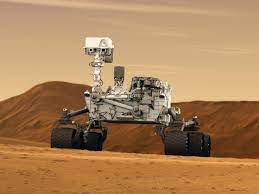An innovative mobile phone application was found to be as good as expert gastroenterologists at characterizing stool specimens, according to a study by Cedars-Sinai. The artificial intelligence (AI) used in the smartphone app also outperformed reports by patients describing their stool specimens.
Stool reporting by patients, usually guided by the Bristol Stool Scale, is crucial to helping physicians evaluate symptoms for diagnosis or for judging the effectiveness of medications.
“Sometimes patients don’t know what is normal or abnormal when trying to characterize a bowel movement. This app takes out the guesswork by using AI, not patient input, to process the images taken by the smartphone,” said principal investigator of the study Mark Pimentel, MD, executive director of the Medically Associated Science and Technology Program at Cedars-Sinai.
“The mobile app produced more accurate and complete descriptions of constipation, diarrhea and normal stools than a patient could and was comparable to specimen evaluations by well-trained gastroenterologists in the study,” said Pimentel, a specialist in irritable bowel syndrome (IBS).
The validation study, was published in the American Journal of Gastroenterology and will be presented at the Digestive Disease Week conference in San Diego on May 21.
Investigators used a trained AI app for smartphones developed by Dieta Health, a graduate of the Cedars-Sinai Accelerator program that helps entrepreneurs bring their innovative healthcare technology products to market. In a randomized controlled study, participants with diarrhea-predominant IBS, or IBS-D, were asked to use the AI app to take a picture of every stool for two weeks. In addition to the commonly used Bristol Stool Scale, the AI app also incorporates additional classification parameters. Two expert gastroenterologists assessed the images to validate the mobile app.
“The artificial intelligence tool removes the subjective description that can be part of a patient’s description of their bowel specimens. In addition to improving a physician’s ability to assess their patients’ digestive health, this app could be advantageous for clinical trials by reducing the variability of stool outcome measures,” said Ali Rezaie, MD, co-author of the study and the medical director of GI Motility at Cedars-Sinai.
You may like to read:
Nanomaterial-Based Virus Sensors
Hope for 1st vaccine against virus driving ‘mono,’ cancers and maybe MS












